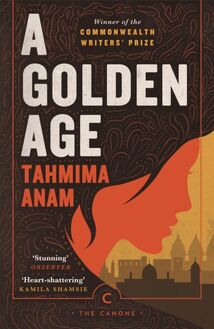Sunday At The Pool In Kigali , livre ebook
122
pages
English
Ebooks
2003
Vous pourrez modifier la taille du texte de cet ouvrage
Obtenez un accès à la bibliothèque pour le consulter en ligne En savoir plus
Découvre YouScribe en t'inscrivant gratuitement
Découvre YouScribe en t'inscrivant gratuitement
122
pages
English
Ebooks
2003
Vous pourrez modifier la taille du texte de cet ouvrage
Obtenez un accès à la bibliothèque pour le consulter en ligne En savoir plus
Publié par
Date de parution
15 septembre 2003
Nombre de lectures
2
EAN13
9781847677037
Langue
English
Publié par
Date de parution
15 septembre 2003
Nombre de lectures
2
EAN13
9781847677037
Langue
English
To my Rwandan friends swept away in the maelstrom
Émérita, André, Cyprien, Raphaël, Landouald, Hélène, Méthode
To a few unsung heroes still living
Louise, Marie, Stratton, Victor
Finally, to Gentille, who served me eggs and beer and could be dead or alive, if only I knew
I have tried to speak for you I hope I have not failed you
Contents
Title Page Dedication Preface Translator’s Note Chapter One Chapter Two Chapter Three Chapter Four Chapter Five Chapter Six Chapter Seven Chapter Eight Chapter Nine Chapter Ten Chapter Eleven Chapter Twelve Chapter Thirteen Chapter Fourteen Sources About the Author Praise Copyright
Preface
This novel is fiction. But it is also a chronicle and eyewitness report. The characters all existed in reality, and in almost every case I have used their real names. The novelist has given them lives, acts and words that summarize or symbolize what the journalist observed while in their company. If I have taken the liberty of inventing a little, I have done so the better to convey the human quality of the murdered men and women. Those who planned and carried out the genocide are identified in this book by their true names. Some readers may attribute certain scenes of violence and cruelty to an overactive imagination. They will be sadly mistaken. For proof, they have only to read the seven hundred pages of eyewitness reports gathered by the African Rights organization and published under the title Rwanda: Death, Despair and Defiance (African Rights, London, 1995).
Finally, I would like to thank Patricia Claxton for the wonderful job she has done in translating my book into English, and for the skill and great care she brought to the task. As a result of our discussions, we made a few useful modifications and I took her counsel and the opportunity she offered to clarify some additional points. A good translation improves a text, and I feel that is certainly true in this case.
G. C.
Translator’s Note
I have had the pleasure and privilege of working closely with Gil Courtemanche, following the original publication in French of Un dimanche à la piscine à Kigali .
In response to suggestions that readers might appreciate knowing more about the background of Rwandan politics, I have provided a few additional footnotes and now and then added a clarifying word or two to the body of the book, hoping to give a maximum of information with a minimum of disruption to the story. Some of this material was provided by the author.
The translation of all quotations of poetry by Paul Éluard and of a sentence by Albert Camus is mine. Bibliographical references for the original excerpts will be found at the back of the book.
I would like to thank a number of people for their assistance with background and terminological information in their fields of expertise: Nouella Grimes, Antonino Mazza, Roger Titman, Eleanor Maclean of the Blacker-Wood Library of Biology at McGill University, Line Provost of La Clinique médicale l’Actuel in Montreal, Dr. Anne-Louise Lafontaine, Dr. David Claxton. Thank you to Gil Courtemanche for his cooperation and his confidence in me. Thank you also to Louise Dennys, Noelle Zitzer and Doris Cowan for their careful, courteous editing, and to our Australian publisher, Michael Heyward, for some astute and timely observations.
Patricia Claxton, Montreal, January 2003
Chapter One
In the middle of Kigali there is a swimming pool surrounded by deckchairs and a score of tables all made of white plastic. And forming a huge L overhanging this patch of blue stands the Hôtel des Mille-Collines, with its habitual clientele of international experts and aid workers, middle-class Rwandans, screwed-up or melancholy expatriates of various origins, and prostitutes. All around the pool and hotel in lascivious disorder lies the part of the city that matters, that makes the decisions, that steals, kills, and lives very nicely, thank you. The French Cultural Centre, the UNICEF offices, the Ministry of Information, the embassies, the president’s palace (recognizable by the tanks on guard), the crafts shops popular with departing visitors where one can unload surplus black market currency, the radio station, the World Bank offices, the archbishop’s palace. Encircling this artificial paradise are the obligatory symbols of decolonization: Constitution Square, Development Avenue, Boulevard of the Republic, Justice Avenue, and an ugly, modern cathedral. Farther down, almost in the underbelly of the city, stands the red brick mass of the Church of the Holy Family, disgorging the poor in their Sunday best into crooked mud lanes bordered by houses made of the same clay. Small red houses just far enough away from the swimming pool not to offend the nostrils of the important filled with shouting, happy children, with men and women dying of AIDS and malaria, thousands of small households that know nothing of the pool around which others plan their lives and, more importantly, their predictable deaths.
Jackdaws as big as eagles and as numerous as house sparrows caw all around the hotel gardens. They circle in the sky, waiting, like the humans they’re observing, for the cocktail hour. Now is when the beers arrive, while the ravens are alighting on the tall eucalyptus trees around the pool. When the ravens have settled, the buzzards appear and take possession of the topmost branches. Woe betide the lowly jackdaw that fails to respect the hierarchy. Birds behave like humans here.
Precisely as the buzzards are establishing their positions around the pool, precisely then, the French paratroopers on the plastic deckchairs begin putting on Rambo airs. They sniff all the feminine flesh splashing around in the heavily chlorinated water of the pool. Its freshness matters little. There is vulture in these soldiers with their shaven heads, watching and waiting beside a pool that is the centrepiece of a meat stall where the reddest, most lovingly garnished morsels are displayed alongside the flabby and scrawny feminine fare whose only diversion is this waterhole. On Sundays, as on every other day of the week at around five o’clock, a number of carcasses some plump, some skeletal disturb the surface of the pool, well aware that the "paras," as the paratroopers are known, are not the least daunted either by cellulite or by skin clinging to bones merely from habit. The women, if they knew what danger stalked them, would drown in anticipation of ecstasy or else get themselves to a nunnery.
This tranquil Sunday, a former minister of justice is warming up energetically on the diving board. He does not realize that his strenuous exercises are eliciting giggles from the two prostitutes from whom he is expecting a sign of recognition or interest before diving into the water. He wants to beguile because he doesn’t want to pay. He hits the water like a disjointed clown. The girls laugh. The paras too.
Around the pool, Québécois and Belgian aid workers vie in loud laughter. The Belgians and Québécois aren’t friends; they don’t work together, even though they are working toward the same goal: ‘development.’ That magic word which dresses up the best and most irrelevant of intentions. The two groups are rivals, always explaining to the locals why their kind of development is better than the others’. The only thing they have in common is the din they make. There ought to be a word for the atmosphere surrounding these Whites who talk, laugh and drink in a way that makes the whole pool know their importance no, not even that just their vacuous existence. Let’s use the word ‘noisiness’ because there’s certainly noise, but it’s continuous, there’s a permanence to it, a perpetual squawking. In this shy, reticent and often deceptive country, they live in a state of noisiness, like noisy animals. They are also in continuous rut. Noise is their breathing, silence their death, and the asses of Rwandan women their territory of exploration. They are noisy explorers of Third World asses. Only the Germans, when they descend on the hotel in force like a battalion of moralizing accountants, can match the Belgians and Québécois in noisiness.
Important Frenchmen don’t stay at this hotel. They dig themselves in at the Méridien with high-class Rwandans and clean hookers who sip whisky. The hookers at this hotel are rarely clean. They drink Pepsi while waiting to be picked up and offered a local beer, which may get them offered a whisky or a vodka later on. But these women are realists, so today they’ll settle for a Pepsi and a john.
Valcourt, who is also Québécois but has almost forgotten it over the years, observes these things and notes them down, muttering as he does so, sometimes angrily, sometimes with tenderness, but always audibly. For all anyone knows or imagines, he’s writing about them, and everyone wants someone to ask him what he’s writing, and worries about this book he’s been writing since the Project left him more or less high and dry. Sometimes he even pretends to be writing, in order to show he’s alive, watchful and serious like the disillusioned philosopher he claims to be when he runs out of excuses for himself. He’s not writing a book. He writes to put in time between mouthfuls of beer, or to signal that he doesn’t want to be disturbed. Rather like a buzzard on a branch, in fact, Valcourt is waiting for a scrap of life to excite him and make him unfold his wings.
At the end of the terrace, walking slowly and grandly, appears a Rwandan just back from Paris. You can tell, because his sporty outfit is so new its yellows and greens are blinding, even for sunglass-protected eyes. There’s sniggering at a table of expatriates. Admiration at several tables of locals. The Rwandan just back from Paris is afloat on a magic carpet. From the handle of his crocodile attaché case dangle First Class and Hermès labels. In his pocket, along with o














